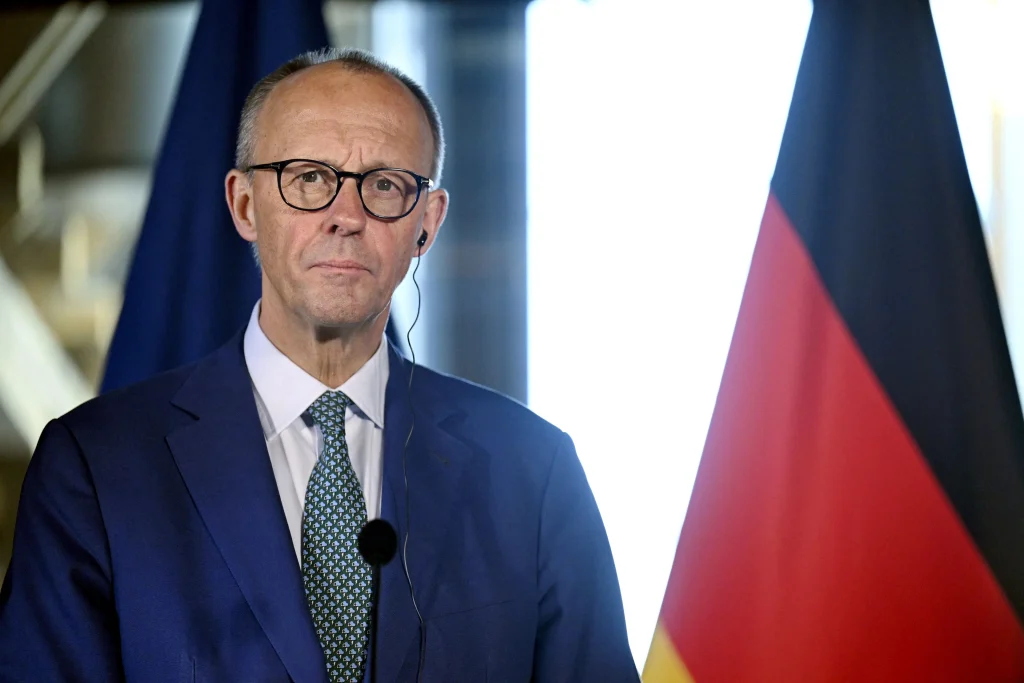DONALD Trump has delayed his 50 per cent tariffs on the European Union just days after first threatening them. Perhaps by breakfast, he’ll have changed his mind again. We’re seeing the limits of the madman negotiating strategy: The longer it lasts, the more it has the effect of crying wolf. Financial markets are reacting somewhat soberly and looking past the bluster. Europeans should do the same and avoid the trap of giving in to a bully – however dominant and well-armed he may be.
Just as the EU had to keep calm and carry on negotiating when Trump was threatening 20 per cent blanket tariffs – and likewise when he hit pause for 90 days in the face of financial-market turmoil – so it must continue when facing a raised hammer like a 50 per cent tariff. Yes, the economic impact of such a doomsday scenario would be big: Total exports to the US would fall by half, according to Bloomberg Economics, which would be brutal for a Germany facing another year of zero growth. Yet, US GDP would also fall by over 2 per cent and prices would rise over 1 per cent, making it unlikely they would stay in place long – one reason why last week’s stock-market sell-off was relatively contained.
Carrot and stick approach
The point is not to assume Trump’s bluffing – rather that he’s opting for cheap pressure tactics rather than costly trade breakage as the likes of Jamie Dimon warn of stagflation. Better to hope for the best, prepare for the worst and keep offering avenues for de-escalation – as seen in Ursula von der Leyen’s successful bid for more time. The alternative of giving in to US demands would be to surrender on an industrial scale: The EU would be dropping basic taxation and food standards just because the MAGA (Make America Great Again) ideology considers them tariffs. Sacrificing one trillion euros (S$1.5 trillion) in annual revenue from value-added tax would leave the EU angrier, poorer and less able to defend itself against Russia. European politicians have elections to win, too.
Getting its act together
This is why Trump, ironically, is doing Europe a favour with every all-caps trade ultimatum that chips away at sentiment and delays investment. The next 40 days will fundamentally push the EU to get its act together – from defending Ukraine to knocking down domestic barriers to growth – and not just patiently negotiate tariff carve-outs. As former secretary of state Antony Blinken recently told French newspaper Le Figaro: “President Trump respects strength, and when he looks at Europe, strength is not what he sees.” BLOOMBERG


